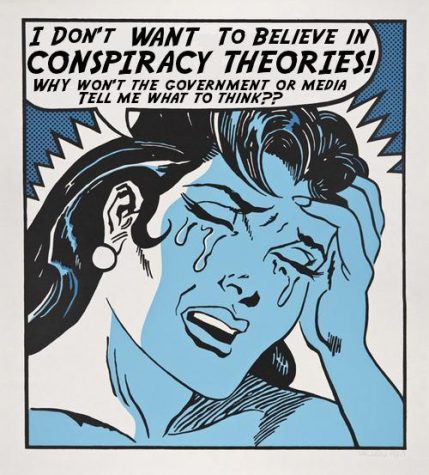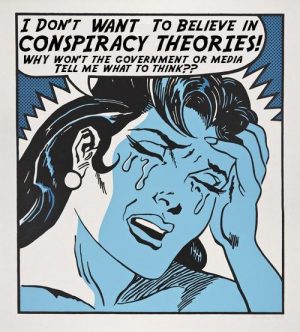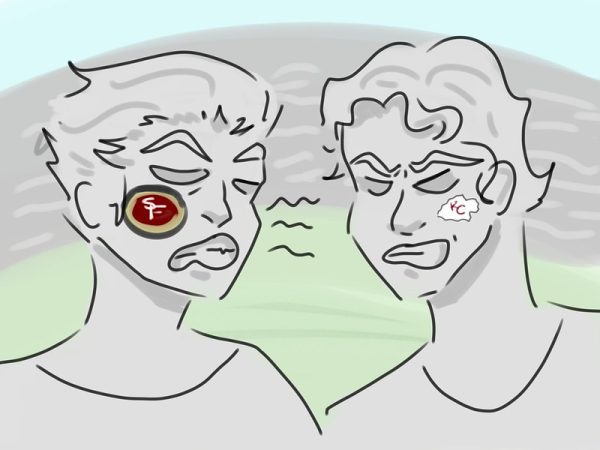You’re missing out on the liberal bias
Dear Reader,
Reality has a stupidity bias.
To be perfectly clear, bias is the enemy of objectivity, objectivity is truth and truth is good journalism. So here we sit in the midst of failure, all this news made by biased people with biased thoughts and biased articles. The “mainstream media” (e.g. the New York Times , CNN, the Washington Post and — I guess, Buzzfeed?) is obviously tinged with liberal bias. I’m certainly not the first person to say that. And since journalism aspires to objectivity, in that sense, the mainstream media is failing us.
And the constant, unfailing “OH MY GOD DONALD TRUMP IS A NIGHTMARE YOU GUYS DO YOU SEE THIS HE’S A NIGHTMARE” that’s been plastered on every liberally-biased newspaper (and, likely, your social media feed) for over a year now certainly isn’t helping either the media’s image or their, ahem, objectivity.
So publications try weird stuff. In an effort to step outside their ideological comfort zone, the New York Times very lovingly covered a Nazi a few months ago — which was not the best. They also hired a climate change, uh, “skeptic” as a regular columnist.
In general, the liberal media has fallen over itself trying to be objective while also writing these “OH MY GOD TRUMP” articles, which is fascinating to watch. Liberals, these days, are deeply interested in “discourse,” “multiple perspectives” and looking at “both sides.”
In the pursuit of objectivity, these might be good initiatives. And objectivity is appealing. But objectivity might be diverging from truth.
I said earlier that reality has a stupidity bias, which is true in every sense, because bias is like a fancy word for human stupidity: our natural blinkeredness and inability to consider everything at once, “objectively.” All this news made by stupid people with stupid thoughts and stupid articles.
But consider, instead, the idea that “reality has a well-known liberal bias,” as Stephen Colbert once said. What Colbert was referring to was the fact that liberal political positions tend to be more rooted in “reality,” i.e., actual evidence. Was he right?
I have no idea. All I can say for sure is that I tend to agree with liberal positions, even if I don’t think they go far enough. I think the evidence is abundantly clear that tax cuts to the rich will not foster economic growth, as history has borne out. I think “political correctness” is pretty alright, to be honest. I think we still need feminism. I think we still need to really deal with fascists, the unofficial mascots of this column. I think gay marriage is cool. I think women should have the right to choose. I think we have a gun problem.
Are these positions self-evident, true, unbiased, objective? The most based in “reality”? Who knows. I consume media like everyone else — sparsely, incomprehensively, absentmindedly. I’ve got nothing like an “objective” view of the evidence when it comes to politics, even if such a thing is possible. I certainly consume media with a liberal bias, and write with one, too.
But what’s more important to me than the rational connection between evidence and truth and action is the mere fact of begging the question. It’s alarming to me that, for example, the question of women having the right to choose was ever brought up for discussion, especially the discussion of men; once that happens, then the window of ideological possibility (or the Overton window, if you want to use jargon) has been opened. And being “pro-choice” becomes a position — a biased position.
Bias is a dirty word these days. Many a fascist uses it as a slander these days. The “mainstream media” is biased towards the left, absolutely, and so people say it lacks objectivity, which is also true. But a lack of objectivity is not necessarily a lack of truth.
Objectivity, if anything, functions like a cover. Alfredo Riley, writing for the New Inquiry, notes that when he tried to honestly cover police brutality honestly in the early ‘10s (before it was in vogue), he was shut down hard by editors who told him they had to maintain “objectivity.”
Objectivity is impossible, especially from our subjective minds, and that makes this whole notion of “bias” and its measurement seem ridiculous. Even the measurement of bias is biased. (I mean, for a publication as “liberally biased” as the New York Times, you’d think it wouldn’t still be run by a dynasty of white guys. But it is. They’re called the Sulzbergers.)
The truth, whatever it is and wherever it lay, is never going to be in the exact center; it’s never going to be “unbiased.” But the thought that the truth lies in the center, from looking at “both sides” and “multiple perspectives,” is a common logical fallacy (an “argument to moderation,” to be exact), a lovely one that aspires to truth by compromise.
But the truth doesn’t compromise. That’s not to say that the liberally-biased media are necessarily closer to the truth because it’s biased — the same goes for media with any type of bias. Of course, I could argue that the liberal media tells the truth more often and in greater density than Fox News, but that would require some deal of boring “evidence” and “argument,” and that’s not important right now.
What does matter is the notion of truth in the first place. What does it mean for any of my previously stated positions to be somehow correct? What if I have a political position that goes against the logic of what the evidence suggests — is it somehow bad? Truth isn’t necessarily righteousness.
So if the media is biased, it’s not necessarily harmful. Bias is not a valid way to automatically dismiss a position, because everything is biased, especially depending on where the window of ideological possibility may lie.
Case in point: I’ve certainly contradicted myself several times in this very column, and perhaps that makes me unbiased. Doesn’t make anything I’ve written less ridiculous than it is.

Armaan joined this class because his friend told him it was fun. He didn't take it too seriously at first, but...
...in his first year he became super interested in the class, and was Assistant A&E...













